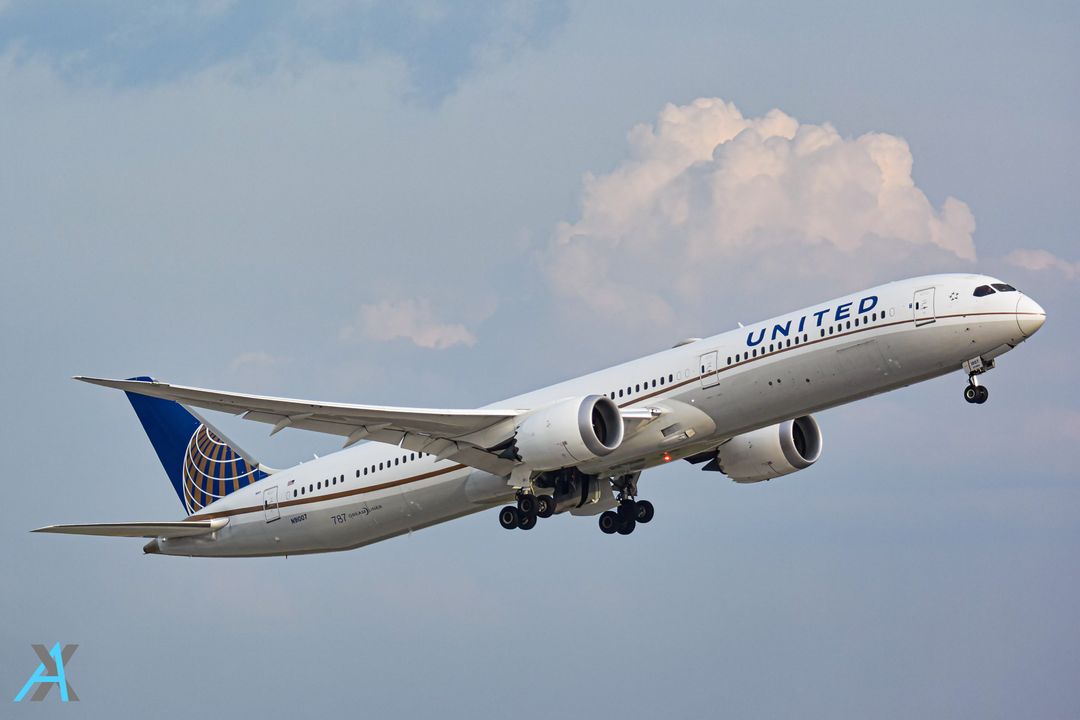St. Louis-based tattoo artist Gina Carr is possibly one of musician Harry Styles’s greatest fans. She glommed onto the British superstar as a One Direction singing group member and has followed him avidly ever since. Seeing him often has been a travel adventure.
“Planes, trains, and automobiles!” Ms. Carr quipped in describing her travels to see Styles live in concert. Regarding the events that required air travel, she said, “In general, flights were planned or purchased probably about 3-6 months in advance depending on how far in advance Harry announced dates. We got the concert tickets first, but flights were harder to get!”

Music fans willing to travel long distances to see their idols in action is nothing new. Think Woodstock or the “Deadheads” that followed The Grateful Dead on their extended tours. Nowadays, those numbers include an ever-growing group of air travelers, enough to make storied music festivals such as Glastonbury, Coachella, and Lollapalooza truly global affairs.
Music tourism is now an established subset of the travel industry. When Coldplay announced their 2024 tour dates for Europe, flight searches to Athens, Greece, increased by 63% for the week the concert was scheduled, and searches for flights to Romania went up by 91%, according to Amadeus Travel.

The Taylor Swift Economy
No artist represents the potential for the economic impact of music better than Taylor Swift. The U.S. portion of her Eras Tour has had a $4.6 billion impact on the U.S. economy. Over 3.7 million Swifties, as her fans are called, traveled more than 100 miles from home to see her shows. She averaged just above 72,00 fans per performance, selling out football stadiums across America.
Such attendance numbers made her a larger draw in 2023 than the next four performers - Beyonce, Ed Sheeran, Elton John, and Dead and Company - combined. Such a large economic impact “seems absurd at first,” wrote Anthony Davis, Senior Director at HVS Convention, Sports, & Entertainment Facilities Consulting in Chicago, Illinois. HVS also reported that Swift’s 53 shows in 20 cities boosted U.S. hotel reservations by $ 208 million.
However, such figures make the supposed “Taylor Swift economy” larger than the gross domestic product of 50 countries. QuestionPro, an online research, insights, and experience company, estimates concertgoers spend about $1,300 per show in travel, tickets, and accommodation.

The Taylor Swift effect continues in Europe for the international portion of the Eras Tour in 2024. The Spanish online travel booking company eDreams reports that the demand for flights to Stockholm for Swift’s May concert dates was six times greater than usual. Demand to fly to Warsaw around concert dates rose 339%, while flights to Edinburgh, Liverpool, and Paris leaped 176%, 133%, and 108%, respectively.
Naturally, airlines have looked to tie into the Swift phenomenon. There was enough of a bump in travel from the Philippines to her March concerts in Singapore that Philippine Airlines handed out Swift-inspired friendship bracelets on their flights, while Cebu Pacific changed a Singapore-bound flight number to “1989,” the year of Swift’s birth and the name of one of her albums. The internet is rife with videos of planes full of Swift fans loudly singing her songs together in the cabin.

The Music Festival Circuit
The festival circuit has a direct impact on air travel as well. Allianz Global Assistance, a leading travel insurance and assistance company, reports that the Coachella Valley Music and Arts Festival, held every year in the Southern California desert, creates 46 percent more travelers by air than Austin, Texas’s South by Southwest (SXSW), and 89 percent more than the Ultra Music Festival in Miami, FL. Over 22% of Coachella’s 500,000 attendees in previous years were international visitors, while only 21% were from California.
Music Specialty Tours
A little further off the beaten path, some music tourism promoters serve specific tastes. Travel company Onenonly, for example, specializes in packages for EDM (electronic dance music) festivals. Nancy Covey’s Festival Tours International offers “Music & Culture Tours That Are Not For Tourists.” Through Festival Tours International, discerning music lovers can book excursions that include the New Orleans Jazz & Heritage Festival along with a Cajun Country Tour or a Celtic Music Art & Culture tour in Brittany, France, that takes in Paris, Rennes, Quimper, Vannes, Mont Saint Michel, and Ile d’Ouessant. What sets this tour apart is that it is led by Breton musicians who share their personal insight into the culture, language, dances, and instruments of their art.

Music and Culture
Similarly, Morocco hopes to combine cultural and musical tourism for The Gnaoua Festival, held every summer at Essaouira, a UNESCO World Heritage site. The 4-day festival attracts an audience of 500,000 festival-goers. Gnaoua music combines ritual poetry with traditional music and dancing and is said to have healing powers shared through long songs that induce trance-like states.
A seven-day tour package includes ten concert sites from which attendees can choose from ten different but complementary programs. The rest of the tour includes travel by luxury 4X4, beginning and ending at the airport in Marrakesh, a city in the foothills of the Atlas Mountains. Non-musical activities range from camel excursions to windsurfing, stunning Moorish and Portuguese architecture, and a visit to a hammam, a traditional North African version of the sauna or steam bath, to experience a ritual cleansing.

The ubiquitous online booking sites are also realizing the powerful attraction of music destinations as well. For instance, an opera-loving traveler may type “Teatro alla Scalla” into the websites’ search bars to discover several listings for ways to visit the famous La Scala Theatre in Milan, Italy.
Such a search will generate numerous combinations of hotels and flights to Milan that put the tourist close to the theatre and its one-hundred-year-old museum, much of it dedicated to Giuseppe Verdi, one of history’s most regarded opera composers. Historical musical scores, costumes, and staging are on display there.
With reasonably affordable air travel available to an ever-shrinking globe, specialized travel such as this makes the world’s music more and more accessible. The trend will most likely increase as the economic impact of music events increases. If that realization, in turn, creates more demand, then music tourism will find a permanent place in the travel industry.
Frontier Airlines Wraps Up 2025 with Major International Expansion from Atlanta » How Borders Shape Human Stories » When Will the Boeing 777X Enter Service? Delays, Certification, and 2027 Outlook »
Comments (0)
Add Your Comment
SHARE
TAGS
INFORMATIONAL Taylor Swift Cebu Pacific Singapore Airlines Economics Travel Demand Tourism Music Tourism Morocco Italy California France Philippines SingaporeRECENTLY PUBLISHED
 The Runway is Obsolete: Jekta Swiss is Resurrecting the Flying Boat for the 21st Century
AeroXplorer sat down with George Alafinov, CEO & Co-founder of Jekta Swiss. In conversation, he discussed the company's unique value proposition and how he sees his aircraft revolutionizing the amphibious aircraft industry.
STORIES
READ MORE »
The Runway is Obsolete: Jekta Swiss is Resurrecting the Flying Boat for the 21st Century
AeroXplorer sat down with George Alafinov, CEO & Co-founder of Jekta Swiss. In conversation, he discussed the company's unique value proposition and how he sees his aircraft revolutionizing the amphibious aircraft industry.
STORIES
READ MORE »
 Why Fast Price Estimation Has Become Critical for Brokers and Clients
In today's private aviation market, speed is no longer a "nice to have." It's an expectation. Brokers, operators, and clients all work under tighter timelines, higher price sensitivity, and far less tolerance for vague answers. When someone asks, "How much will this flight cost?" they don’t want a rough guess tomorrow; they want a credible answer now.
INFORMATIONAL
READ MORE »
Why Fast Price Estimation Has Become Critical for Brokers and Clients
In today's private aviation market, speed is no longer a "nice to have." It's an expectation. Brokers, operators, and clients all work under tighter timelines, higher price sensitivity, and far less tolerance for vague answers. When someone asks, "How much will this flight cost?" they don’t want a rough guess tomorrow; they want a credible answer now.
INFORMATIONAL
READ MORE »
 The Top 5 Longest Flights in the World
Technology continues to transform the way we live, work, and connect. Few industries embody this more than air travel, which has effectively shrunk the world in recent years. Journeys that would have once seemed impossible can now be completed in mere hours. Here's a look at the World's Top 5 flights, ranked by distance.
INFORMATIONAL
READ MORE »
The Top 5 Longest Flights in the World
Technology continues to transform the way we live, work, and connect. Few industries embody this more than air travel, which has effectively shrunk the world in recent years. Journeys that would have once seemed impossible can now be completed in mere hours. Here's a look at the World's Top 5 flights, ranked by distance.
INFORMATIONAL
READ MORE »



